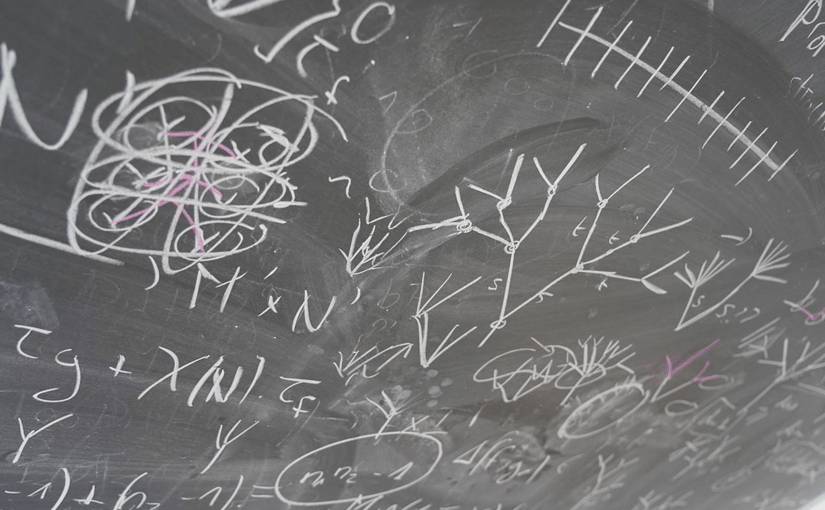Concrete abstractions

“The picture illustrates the thought process. It illustrates the reality of how we work together,” said Professor Nathalie Wahl, who won 2nd place in the DNRF’s photo competition 2024 with the photo Six points on a blackboard.
“I have known about the photo competition for many years, and I have always thought it would be fun to try to show the world, with just a picture, what it is we do and how working with mathematics largely takes place in the head,” she explained. She continued:
“But when it gets more complicated, we need a blackboard, because it’s hard to keep it all in our heads. When we have the board, we can help each other see the same thing. And the many scribbles in the photo show, in this case, that my Ph.D. student and I were talking at the blackboard for a long time.”
Here, Nathalie Wahl explains about the reserach behind the winning photo:
Six points on a board illustrates a configuration space.
“These are spaces where points are not allowed to collide. They are everywhere: points can represent particles or physical objects like robots that shouldn’t bump into things or into each other. These spaces are very interesting, and they appear in many places in mathematics.”
Defining and understanding objects
Wahl is head of the Copenhagen Center for Geometry and Topology, where researchers work with geometry, and something known as topology, which is a form of “rubber geometry.”
“We study mathematical objects. We typically start with objects coming from finite dimensional geometry, like surfaces, but to understand them, we often end up with questions about huge, infinite-dimensional objects,” said Wahl. She went on to explain how the researchers’ work often goes: “They define something that fulfills certain properties that fit a particular problem they are trying to solve.”
“So, we have to invent something, and we have total freedom. There are no limits because we are talking mathematics. It’s all in our heads, and we try to guess. Before we can do any precise math, we often end up with guesswork. And when we have something we believe will be the right thing, then we start writing things down in formulas or precise mathematical language.”
But before ending up with a formula the researchers may have been working for years on a proof, and it has typically been revised many times along the way.
In this process, Wahl is in her own world, but research in mathematics is, in fact, often done in groups of 2 or 3 people, because one gains a lot from exchanging viewpoints.
“We can be in a situation where we feel we are looking at roughly the same thing, but do not understand exactly how things match. Then we meet and get our languages to talk to each other. This process is often fruitful, allowing us to move on and understand something new,” Wahl continued.
“It’s fantastic when you’ve solved a problem, when you’ve understood something and can say: ‘That’s how it is; now I can see it!’”
Mathematical playground
Conducting research in mathematics is, in Wahl’s own words, a game, but an important game, because it is how one discovers new things in mathematics that at some point become useful; that is, they find an application “in the real world.”
And as a mathematician, one looks at the world through a special lens:
“If I see a tree, for example, I can’t help looking at the way it branches out. Normally, branches don’t meet to form circles. But if a tree kind of comes back to itself and makes circles anyway, as can happen in nature, then we mathematicians think it’s funny because, trees are not allowed to do this in our mathematical world. Per definition, it is not a tree anymore! And this puts the game into perspective, because mathematics is always concerned with precision,” Wahl concluded:
“We always have to be super precise, because our game is a game with axioms, and if you are not very careful, you can end up with a contradiction, and then the house of cards can collapse.”
